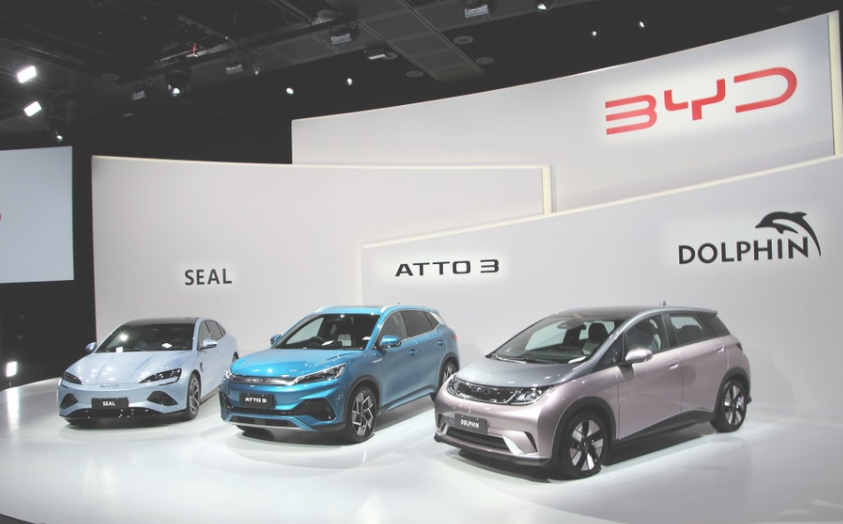
Seoul, South Korea – BYD, a leading Chinese electric vehicle (EV) manufacturer that has been rivaling Tesla on a global scale, is set to make its mark on the South Korean passenger car market early next year. This marks a significant expansion for the company, which has been operating in South Korea since 2016, primarily focusing on commercial vehicles such as electric forklifts, buses, and trucks.
BYD Korea officially announced its plans to launch passenger car models in the domestic market. The company has been conducting market research and securing dealerships in preparation for its entry. While specific models and launch dates have not yet been disclosed, industry insiders anticipate that the Seal, a mid-size electric sedan, and the Atto 3, a compact electric SUV, will be among the first models to hit the South Korean market.
Given the competitive nature of the South Korean EV market and the increasing demand for affordable electric vehicles, BYD is expected to price its models aggressively. Considering the pricing in Japan, where both models are already available, the estimated price range for the South Korean market is between 30 million and 45 million won (approximately US$22,000 to $33,000) before government subsidies.
BYD's entry into the South Korean market is expected to disrupt the existing market dynamics. The company's aggressive pricing strategy and focus on affordable EVs could pose a significant challenge to domestic automakers like Hyundai and Kia.
BYD's Global Dominance
With a 22.3% market share in the global electric vehicle market, BYD has surpassed Tesla and established itself as the industry leader. The company's rapid growth can be attributed to its focus on cost-effective, long-range electric vehicles, as well as its strong presence in the Chinese market.
BYD's success has forced established automakers like Volkswagen to reassess their strategies. Volkswagen recently announced plans to close its factory in Germany, citing increased competition from Chinese EV manufacturers.
Challenges and Opportunities
While BYD's entry into the South Korean market is expected to stimulate competition and drive down prices, it also presents several challenges. The company will need to overcome consumer perceptions of Chinese-made vehicles and establish a strong dealer network. Additionally, the South Korean government's recent decision to reduce electric vehicle subsidies may impact BYD's pricing strategy.
Industry experts believe that the success of BYD in South Korea will depend on its ability to offer competitive pricing, provide excellent after-sales service, and adapt to the unique preferences of South Korean consumers.
In Conclusion
BYD's imminent entry into the South Korean passenger car market marks a significant milestone for the electric vehicle industry. The company's aggressive expansion and focus on affordability are expected to disrupt the existing market order and offer consumers more choices. As the global automotive industry undergoes a rapid transformation, BYD is poised to play a leading role in shaping the future of mobility.
[Copyright (c) Global Economic Times. All Rights Reserved.]





























